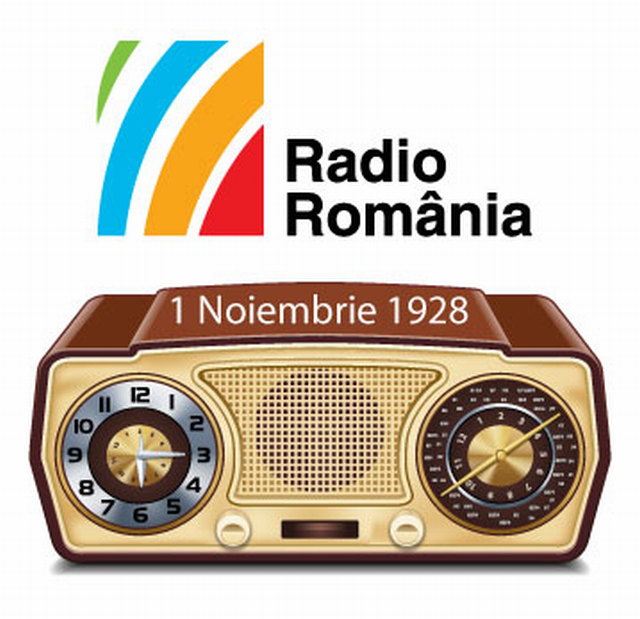Pages of history on Radio Romania
Radio Romania has been, in its 91 years of existence, an actor and an observer of history

Steliu Lambru, 18.11.2019, 12:26
On November 1, 1928, Radio Romania started emitting in Bucharest, growing into the voice of the times, of the ideas and aspirations of Romanians, which shaped the contents of the institution’s broadcasts. Ever since, the development of the public broadcaster has mirrored all the transformations experienced by the Romanian society as a whole, and reflected the major landmarks of the history of the 20th Century.
On August 23, 1944, Romania joined the Alliance of the United Nations, a move which was to shorten the second world war and limit the human and material losses it caused. Taking part in the Council convened by King Michael I that night was, among others, the head of Radio Romania, Vasile Ionescu:
Vasile Ionescu: “In the office of the Sovereign of Romania, starting at 6 PM on August 23, 1944, for 4 hours, until 10:05, I took part in all the preparations and formalities required in order to consolidate the coup that started with arresting Marshall Antonescu and his main collaborators, namely Prof. Mihai Antonescu, the vice-president of the Council of Ministers and also Foreign Minister and Propaganda Minister; Constantin Pantazi, War Minister; Gen. Piki Vasiliu, chief inspector of the gendarme corps and secretary of state with the Interior Ministry; and Prof. Gheorghe Alexianu, the former governor of Transdniester.”
In 1968, troops from the Warsaw Pact countries, except for Romania, invaded Czechoslovakia in order to end Alexander Dubcek’s reformist policy. Engineer Ilie Dragan of the Radio Romania team in charge with the live broadcasting of Nicolae Ceausescu’s speech condemning the armed intervention, recalls:
Ilie Dragan: “In 1968, we were called at home and asked to come to work one hour earlier. They told us we had to do an emergency transmission from a rally to be held in Republica Square. I went there immediately with a team of technicians, I remember we had an outside broadcasting van where we improvised a seat for the anchor, up on the vehicle. We had problems installing everything, because lots of people had started to gather in the square. I remember we had to move the car somewhere in a corner of the square, near a window, on a patch of grass. Together with the team from the national telecoms company, we managed to put up the circuits and 15 minutes before the event started we were live with the radio studio.”
In turn, Radio Romania International covered the milestones of world history in spite of political barriers. Landing on the Moon was one such moment and Sergiu Levescu, a journalist with the French Service of Radio Romania International, remembers very well July 20, 1969 the day when the Apollo 11 crew set foot on the Moon:
Sergiu Levescu: “Apollo 11’s landing on the Moon was the topic of a non-politicised meeting of the RRI’s producers. When Armstrong left the lunar module to explore the Moon surface we all got together in the office of Hortensia Roman, the then editor-in-chief, to listen to the radio programme. It was a really emotional moment.”
In a broadcast from the Olympic Games in Rome, in 1960, radio journalist Ion Ghitulescu was reporting on the moment when Iolanda Balas became an Olympic champion.
Ion Ghitulescu: “The Olympic Stadium is silent again. Iolanda Balas is getting ready for her third 1.85-meter high jump. She heads towards the horizontal bar, gets ready and jumps… We will witness the award ceremony in the high jump event. World record holder and Olympic champion, Iolanda Balas, is the winner. We congratulate you, Iolanda, on this extraordinary win and your hard work!”
Poet Ana Blandiana, was one of the first intellectuals to speak on Radio Romania during the days of the 1989 Revolution:
Ana Blandiana: “Friends, I have just arrived at the Radio coming from the Palace Square, where I joined the thousands of people who could hardly believe this day has finally come. It is very hard to believe that after so many years of humiliation, we have managed to do this, all by ourselves, due to our inner strength, which I almost believed we had lost forever, and without any political schemes or support from more influential and powerful people. The victims in Timisoara and the victims in Bucharest have restored our trust in ourselves and in the power to be ourselves.”
On January 1, 2007, Romania joined the European Union, the most exclusive club of the world’s developed countries. On December 20, 2006, Radio Romania broadcast live the Romanian Parliament’s solemn meeting, celebrating the event. The then president, Traian Basescu, delivered a speech at the meeting:
Traian Basescu: “Two concise sentences, of exceptional political value, will be imprinted in the history of Romania and also in the history of the European Union. The European Council hails the EU accession of Romania and Bulgaria as full member states, starting January 1st, 2007.”
Radio Romania has been, in its 91 years of existence, an actor and an observer of history and will continue to be so.
(translated by: Ana-Maria Popescu, Elena Enache)






























